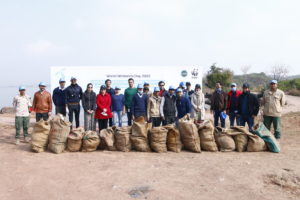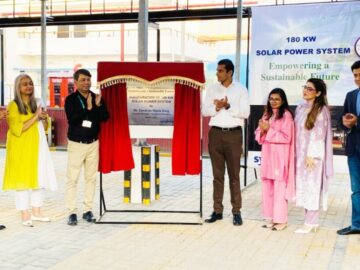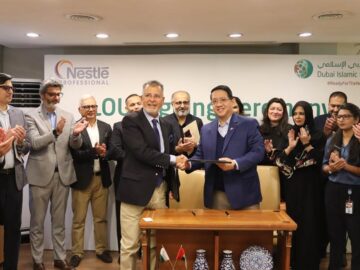
as part of its climate focus and building upon its ambition to create a greener and more sustainable environment, Telenor Pakistan celebrated World Wetlands Day 2022 by conducting a clean-up drive at the Islamabad Kinara Park. The symbolic activity was organized in collaboration with the Islamabad Wildlife Management Board and the World Wild Fund for Nature Pakistan (WWF-Pakistan), to create awareness on the protection of wetlands. The event was attended by volunteers and senior leadership from Telenor Pakistan.
World Wetlands Day is celebrated each year in February to raise awareness about wetlands and their conservation. This is the first year that World Wetlands Day was observed as a United Nations International Day, following its adoption by the General Assembly last year, in a resolution co-sponsored by 75 member states. Almost 90% of the wetlands on our planet have been severely damaged and are degrading three times faster than forests. Wetlands remain a fundamentally important part of natural ecosystems, contributing to biodiversity, climate mitigation and adaptation, freshwater availability and world economies. To achieve net-zero emissions these ecosystems need to be protected and restoration efforts scaled up. Telenor Pakistan believes that raising awareness about wetlands is an important element of environment sustainability and needs awareness and action towards conservation and restoration.
Present on the occasion, Telenor Pakistan’s Chief Executive Officer Irfan Wahab Khan commented, “As part of Telenor’s 2030 climate agenda, we’re committed to not only minimising our impact on the environment, but also inspiring others, individuals and organisations alike, to join the cause. The phenomena of global warming is not new to any of us, but taking action requires all of us to step in and play our part. Healthy wetlands ecosystems provide livelihoods for one billion people globally and by proactively working towards the protection and restoration of wetlands, we can safeguard societies relying on the services and livelihood that these waterways provide. The Decade for Ecosystem Restoration calls for a united front on reducing global warming by 1.5 degrees, and I hope observation of days dedicated to environment restoration and conservation may prove to be the catalyst we all need to better manage, conserve and restore natural ecosystems.”
Also present at the clean-up drive, Rab Nawaz, Senior Director Biodiversity and Conservation, WWF-Pakistan commented, “Through conservation and restoration, we can not only improve the livelihoods of the people that rely on wetlands, but also preserve wetland ecosystem services, which include nature-based solutions to climate change mitigation. Serving as rich carbon sinks, coastal and inland wetlands have the potential to reduce the annual increase of CO2 in the atmosphere.”
The International Trade Administration estimates that close to 50 million tons of solid waste are generated every year in Pakistan, making urban waste management a major challenge. It is also common practice throughout the country to burn and dump harmful waste openly, which ends up in natural water bodies and threatens local biodiversity.










